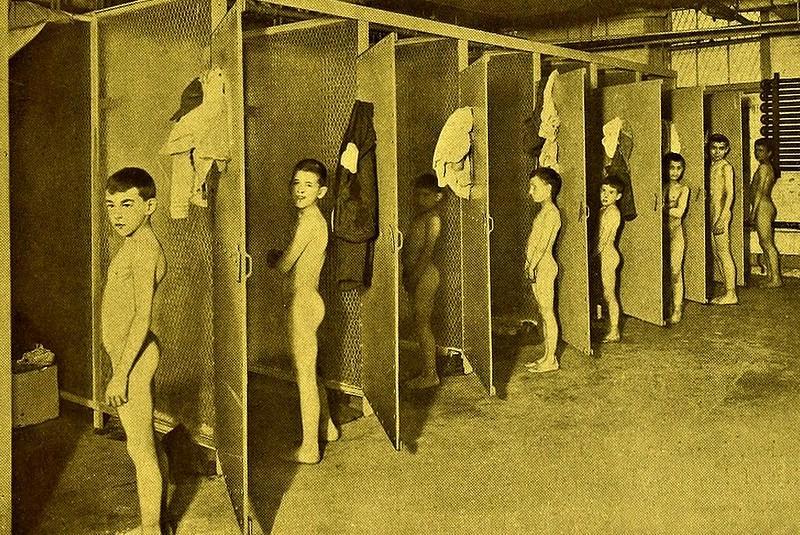Undisciplining Photography Symposium invites photographers and researchers to engage in debates on the potential of photography in contemporary visuality.
What can we do with photography across disciplines: in and outside aesthetical, societal and political spaces? To what new horizons can we disclose the medium?
What conventions should we leave behind to open up a photographic practice beyond the boundaries that have already been set to it? To what political, historical and social roots can we trace these boundaries back?
What issues determine our lives today? How do you approach them visually? What decisions have shaped your visual strategies?
Organized by MA Photography & Society (tutor Thomas Bragdon and MA Photography & Society alumni Marica Kolcheva and Chris Becher), Nederlands Fotomuseum and Research Center for Material Culture.
The symposium is divided into 5 thematic sections
Colonial Rule, Missionary Vision and Counter-Practices
presented by Andrea Stultiens, Gerlov van Engelenhoven
guest speakers Sarah Blokland, Walter Costa, George Mahashe, Dzifa Peters, Markha Valenta, Carine Zaayman

The world as we know it today has been shaped by centuries of colonization, imperia rule, global trade and extractive and exploitative human relationships. Grappling with the position of photography in societies requires close examination of the colonial legacy and how it is interlinked with the photographic medium.
What can a decolonial, postcolonial or anti-colonial visual practice look like? How to address the historical trajectory and burden of imperialism and find ways out, around, through and living with these histories? What positions and methods are available?
Logistics, Infrastructure and Invisible Labour
presented by Donald Weber
guest speakers Michele Borzoni, Mads Holm, Donald Weber

The click of a mouse button can send you anything imaginable via online marketplaces such as Amazon. Within the fast circulation of goods, often hidden are forces of displacement, dispossession and violence. Warehouses, megaships and mega-ports, railroads and other infrastructures inhabit not just the edges of our cities, but often are key vectors of friction and risk.
In a way, logistics is a map of human desire, an entanglement of biological and technological networks where often the most vulnerable are exploited to ensure the smooth flow of goods, people, money and information.
How to address as a photographer such hidden, pervasive networks?
Images at the Intersections of Post-Memory, Trauma and Identity
presented by Shailoh Phillips
guest speakers Laia Abril, Ewan Macbeth, Ali Shobeiri

The persistence of traumatic memory is a recognizable part of post-conflict culture, often re-emerging long after the events that caused it have ceased. Narration or depiction might provide a means of dealing with the cataclysmic past, without suggesting that this process can ever be complete, or even sufficient.
How are traumatic events passed down through generations? What is the role of photography within the production and reproduction of past traumas?
Individuality and Conformity in Social Structures
presented by Thomas Bragdon, Thijs van Stigt
guest speakers Gita Cooper-van Ingen, Shadman Shahid, Daniël Siegersma, Bregje Termeer

What it means to be a person is ambiguous. It can mean your unique individuality, but it can also mean the social function that you conform to in daily life. Both types of personhood reflect various types of photography, such as portrait and landscape photography.
As soon as one pictures a person from one angle, the other angle - the other meaning of personhood - retreats to the background and vanishes.
How can a photographer address personhood in photography?
Ecology, Contamination, Extraction and Slow Violence
presented by Donald Weber, Shailoh Philips, Guglielmo Giomi, Olga Roszkowska
guest speakers Kunci

The landscape is becoming an increasingly violent space, shaped by the toxic entanglement of extraction, neoliberal policy and petro-despotism.
What are the political structures that sustain the uneven geographies of pollution? What does it mean to be a citizen inhabiting increasingly toxic spaces?
Information and participation
The symposium is intended for students, teachers, photographers, artists, researchers, curators, journalists and anyone interested in visual culture. You will have access to the live streaming on the YouTube channel of the Nederlands Fotomuseum after registration. We invite everyone to participate in the discussions with the speakers during the symposium by asking questions and posting comments in the chat stream.
Participation is free of charge and the language of communication is English.
Register via www.undiscipliningphotography.org or by sending an e-mail to symposiumMAPS@kabk.nl.
Exhibition Visual Currency
The exhibition Visual Currency opens on 26 May at the Nederlands Fotomuseum and is part of the Undiscipling Photography symposium.
During the symposium, seventeen international photographers and researchers from twelve different countries (South Africa, Indonesia, Bangladesh, Iran, Canada and several European countries) debate - using their photographic experience and knowledge as a starting point - the question of what photography can contribute to the representation of social issues that shape our lives today.
KABK photography students of the Master Photography & Society respond to the lectures with unprecedented photographic work (images, photo series, film clips).
The exhibition Visual Currency starts during the symposium and can also be seen afterwards by everyone from the Wilhelminakade - street side of the Nederlands Fotomuseum. This window exhibition presents photographic work by Sophie Allerding, João Mateus Da Fonseca Viegas and Rafael Roncato, all photography students of the Master Photography & Society at the KABK.
Details
Date
Location
More info
More info: undiscipliningphotography.org
